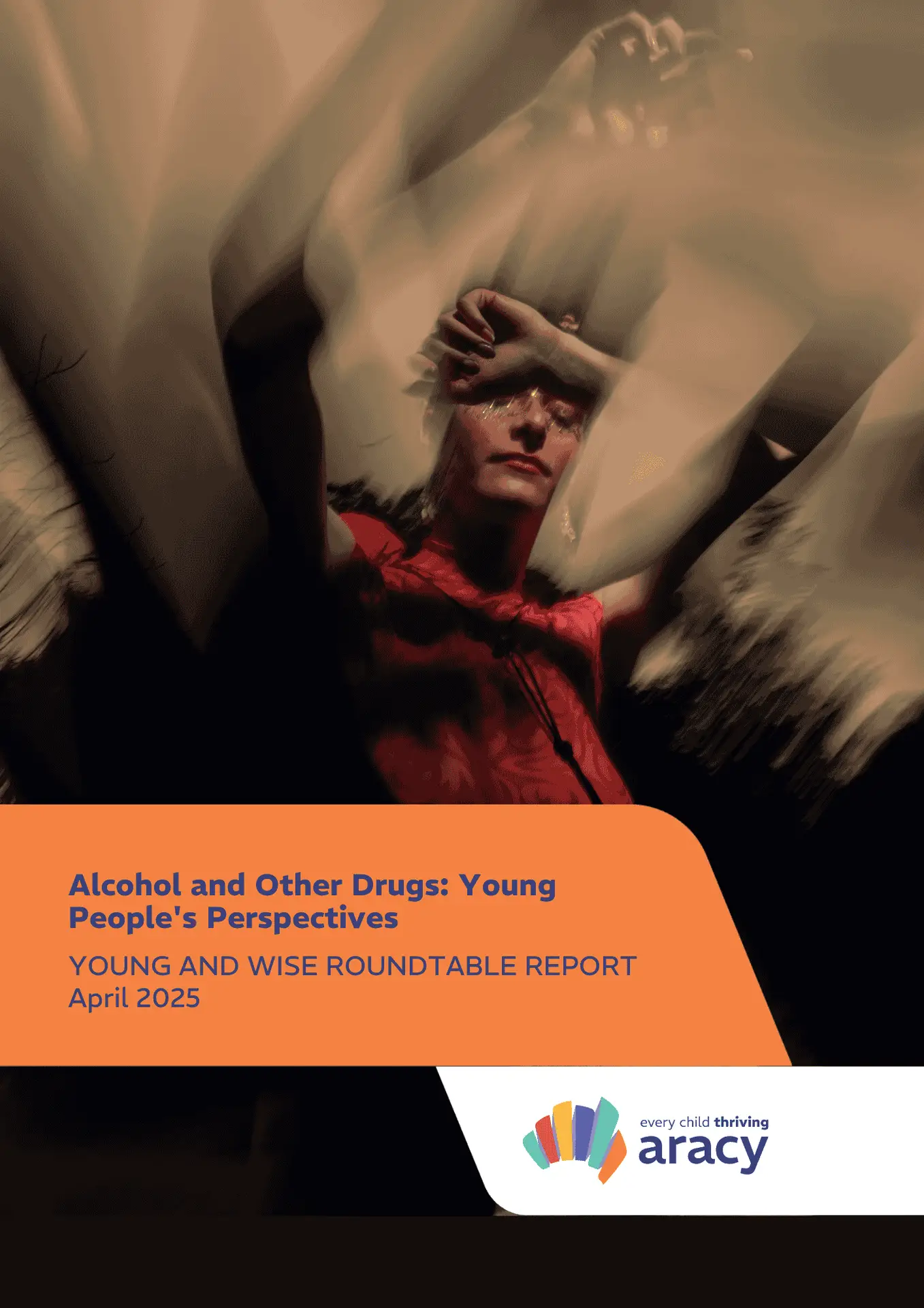Drugs and Alcohol Roundtable Report
Young and Wise Drugs and alcohol roundtable by ARACY Young people are navigating a complex and shifting alcohol and drug landscape. While national data shows alcohol consumption is decreasing, young

Work by the Australian Research Alliance for Children and Youth (ARACY) reinforces the importance of culture and identity to the wellbeing of young Australians and offers guidance on how these can be better measured and managed.
In 2013 ARACY developed an evidence-based wellbeing framework for children and young people called The Nest. Developed in consultation with about 4,000 Australians (many of them young people) it presents the evidence that for an Australian child to truly thrive, they must have their needs met in six key interlocking dimensions: Being Loved and Safe; Having Material Basics; Being Healthy; Learning; Participating; and Having a Positive Sense of Identity & Culture.
While the first five are relatively easily understood and measured, many policy makers and practitioners struggle to quantify the impact of culture and identity on the wellbeing of young people. Many have therefore found it difficult to design systems to maximise these positive impacts.
Building on the work of The Nest, ARACY has now developed a conceptual framework that outlines the areas that can be measured and on which data can be collected. We have also identified principles for developing indicators of children and young people’s sense of identity and culture.
The feasibility of collecting the relevant data and information to measure these indicators is an important consideration. Our analysis also suggests questions which can help guide this work. Equally it is important to identify data gaps.
The report, A Positive Sense of Identity and Culture, has been prepared by ARACY for the Australian Government Department of Social Services. It is accompanied by three Practice Papers
SHARE THIS
Category
Author
Young and Wise Drugs and alcohol roundtable by ARACY Young people are navigating a complex and shifting alcohol and drug landscape. While national data shows alcohol consumption is decreasing, young


With six connected areas, The Nest ensures young Australians have everything they need for the best start in life, helping them reach their highest potential.

Using The Nest, has helped ARACY to be at the forefront of disease prevention and the promotion of holistic health for young Australians.

Here you’ll see some examples of how The Nest has been used in organisations outside of ARACY across Australia.
Discover the latest in child and youth health and wellbeing through our newsletter. Subscribe now for ARACY news, events, and research updates.
Privacy collection statement
ARACY respects your privacy and is committed to protecting your personal information. When you interact with us, we may collect certain details to provide our services, such as your name and contact information. This information will only be used for purposes directly related to our business activities and will not be shared with third parties without your consent, except where required by law. By engaging with us, you consent to the collection and use of your information. For more details on how we handle your information, please refer to our full privacy policy.
ARACY acknowledges the Traditional Custodians and their enduring connection to the lands, waters, and skies. We pay our respects to Elders past and present and extend that respect to all Aboriginal and Torres Strait Islander people.
In solidarity, ARACY supports the Uluru Statement from the Heart and the need for truth-telling about the history and impact of colonisation. We treasure the rich and diverse cultures and customs of First Nations people – valued knowledge holders, leaders and partners in creating the conditions for all our children to thrive.